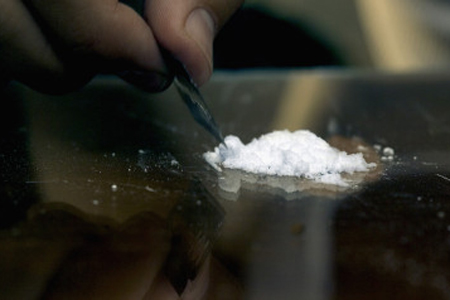
Cocaine may not only rewire the brain after one use, but could also increase users’ susceptibility to HIV, a new study suggests.
Researchers at the University of California, Los Angeles, found that a specific type of immune cell becomes susceptible to the virus after cocaine use.
“Our studies focused on a unique population of immune cells (cells that constitute our body’s defenses against infection), quiescent CD4 T cells, which can be targeted by HIV but are resistant to the virus,” lead researcher Dr. Dimitrios Vatakis, co-director of UCLA’s CFAR Virology Core Laboratory, told The Huffington Post in an email. “We have shown that cocaine exposure sensitizes these cells and increases their susceptibility to infection.”
To test their hypothesis, the researchers collected samples of these dormant immune cells, which constitute the majority of T cells in the body, from healthy human donors. The samples were then exposed to cocaine and infected with HIV in a laboratory setting.
Comparing the infected samples to healthy cells, researchers found that the HIV infection was enhanced within cells that were dosed with cocaine over a period of three days. This suggests that cocaine use not only makes these immune cells more susceptible to HIV but also may hasten the actual integration and growth of the virus.
Cocaine — or, more specifically, crack cocaine — was linked previously to an acceleration of the CD4 cell count. Research published in 2010 indicated that this acceleration has the potential to speed the progression of HIV infection to full-blown AIDS.
Earlier this year, another study revealed that an HIV protein involved in the transcription of the virus boosts the effects of cocaine in mice.
The new study was published in
the October issue of the Journal of Leukocyte Biology.